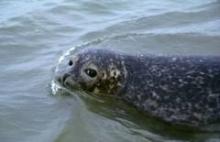Following the 8-month controversy over mammalian-transmissible H5N1 avian influenza research, Dr. Anthony Fauci warned at a meeting of flu researchers in New York this week that more voices are needed in discussion about the risks and benefits of such research.
Until a process is in place and a forum created for such an open discussion, the voluntary research moratorium on strains of H5N1 flu that can pass between mammals by a respiratory route should stay in place, he advised.
Dr. Fauci added in his talk that officials from several departments of the executive branch of the U.S. government are creating such a forum, which he hopes will be in place before the end of this year.
"It’s a different situation now. Times have changed. The rest of the world is concerned about the lack of transparency and input on biosafety and biosecurity when decisions were made" to fund and conduct the studies done by Ron A.M. Fouchier and Yoshihiro Kawaoka that created H5N1 influenza mutants that could transmit between ferrets, Dr. Fauci said in a telephone interview following his talk at the flu meeting on July 31.
"The biomedical research community and the flu community have been criticized by some who said that this needs to be a much more transparent process. This involves the safety of people domestically and globally, and taxpayer dollars, so instead of people setting standards in a closed meeting, the process should involve general-public input. The U.S. government is trying to put into place a process that addresses all the issues of inclusion. I recommended that [flu researchers who might do H5N1 experiments] not lift their moratorium until these issues are addressed," Dr. Fauci said.
He expects representatives from the Departments of Health and Human Services, Defense, Homeland Security, and Agriculture to convene an H5N1 workshop "in the next few months to at least put on the table some broad, general principles [for future research] that can be discussed openly, with input from scientists, the World Health Organization, and the public. The flu scientists must be part of the process, but they can’t be the only part. The U.S. Congress will not accept that, and the global community will not accept that," Dr. Fauci noted.
"We’re trying to deflect the criticism by making this as open and transparent as we can," he added. The way the Fouchier and Kawaoka work was initially discussed, when the National Institutes of Health first decided to fund their research, "led to a lot of misunderstanding and controversy. To avoid all the controversy it’s better to have multiple inputs before the fact. We need to do better, and that’s what we’re trying to do."
Dr. Fauci acknowledged inherent limitations in the influence that he, the National Institutes of Health, and the U.S. government can wield. Comments reported from the meeting this week from some flu researchers, such as Dr. Fouchier, indicated that they may consider using funding from other sources to restart their research without waiting for this discussion. "The only thing the U.S. government can address is what it funds. We can’t control what’s done by research we do not fund," Dr. Fauci said.
Dr. Fauci also highlighted the importance of continuing to move forward with research into mutated avian influenza that gains the ability to infect and transmit among mammals. "It’s important to understand how viruses jump and adapt to species, and to figure out if there are any signposts so that when you do field surveillance you can anticipate that something is going to become more transmissible or pathogenic."
Dr. Fauci cited a report, which coincidently appeared on July 31, that documented mutations in a strain of H3N8 avian influenza that, in the wild, gained the ability to infect, transmit between, and kill harbor seals in New England. This new report "gives another rationale why we have funded these kinds of experiments, because we know that these things happen naturally, in the wild. That’s why you need to study the process and see if we can figure out how it happens and how you might anticipate it. The fact that you can find avian H3N8 flu in seals as an evolved, mutated virus is even more reason to do what we’ve been doing."
–Mitchel Zoler (on Twitter @mitchelzoler)

